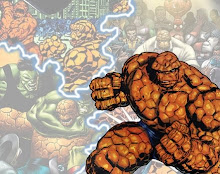
Gregory House, M.D., is a maverick medical genius who heads a team of diagnosticians at the fictional Princeton-Plainsboro Teaching Hospital in New Jersey. Most episodes start with a cold open somewhere outside the hospital, showing the events leading to the onset of symptoms for that episode's main patient. The episode follows the team in their attempts to diagnose and treat the patient's illness.
House's nationally-renowned department typically only sees patients who have failed to receive a correct diagnosis, making the patient cases exceptionally complex and subtle. Furthermore, House resists cases that he does not find interesting. The medical cases featured are often rare but realistic, and described by Andrew Holtz, the author of The Medical Science of House, M.D., as "a conglomeration of all the worst things that can happen to people from all over the world, crammed into one little community."
The team arrives at diagnoses using the Socratic method and differential diagnosis, with House guiding the deliberations. House often discounts the information and opinions from his underlings, pointing out that their contributions have missed various relevant factors. The patient is usually misdiagnosed over the course of the episode and treated with medications appropriate to the misdiagnoses. This usually causes further complications in the patient, but in turn helps lead House and his team to the correct diagnosis by using the new symptoms.
Often the ailment cannot be easily deduced because the patient has lied about symptoms and circumstances. House frequently mutters, "Everybody lies," or proclaims during the team's deliberations: "The patient is lying," or "The symptoms never lie." Even when not stated explicitly, this assumption guides House's decisions and diagnoses.
Because House's theories about a patient's illness tend to be based on subtle or controversial insights, he often has trouble obtaining permission from his boss, hospital administrator Dr. Lisa Cuddy, to perform medical procedures he thinks are necessary, especially when the procedures themselves involve a high degree of risk or are ethically dubious.
Cuddy also requires House to spend time treating patients in the hospital's walk-in clinic; House's grudging fulfillment of this duty is a recurring subplot on the show. During clinic duty, House confounds patients with an eccentric bedside manner and unorthodox treatments, but impresses them with rapid and accurate diagnoses after seemingly not paying attention. Realizations made during some of the simple problems House faces in the clinic often help him solve the main case.
Episodes frequently feature the practice of entering a patient's house with or without the owner's permission in order to search for clues that might suggest a certain pathology. The creator, David Shore, originally intended for the show to be a CSI-type show where the "germs were the suspects," but has since shifted much of the focus to the characters rather than concentrating solely on the environment.
Another large portion of the plot centers on House's abuse of Vicodin to manage pain stemming from an infarction in his quadriceps muscle some years earlier, an injury that forces him to walk with a cane. House admits he is addicted to Vicodin, but says he does not have a problem because, "[The pills] let me do my job, and they take away my pain." His addiction has led two of his colleagues, doctors James Wilson and Lisa Cuddy, to encourage him to go to drug rehabilitation several times, but no attempts have successfully gotten House off the drug. Sometimes when House does not have access to Vicodin, or when he perceives the Vicodin alone is not enough to relieve his pain, he self-medicates with other narcotic pain relievers such as oxycodone and morphine.
House is in many respects a medical Sherlock Holmes. This resemblance is evident in various elements of the series' plot, such as House's reliance on psychology to solve a case, his reluctance to accept cases he does not find interesting, his drug addiction, home address (apartment 221B, the same number as Holmes' home), playing of an instrument, relationship with Dr. James Wilson (who parallels Dr. John Watson),and his encounter with a crazed gunman credited as "Moriarty", which is the same name as Holmes' nemesis. Also, series creator David Shore has said that Dr. House's name is meant as "a subtle homage" to Sherlock Holmes (i.e., homes).


1 comment:
My name is Marcy Barnes and i would like to show you my personal experience with Vicodin.
I am 23 years old. Have been on Vicodin for 3 months now. Is very relaxing, is the perfect medice for pain and eit calms you and mellows you down the best
I have experienced some of these side effects -
constipation, dependecy, nausea and stomach pain at morning.
I hope this information will be useful to others,
Marcy Barnes
Vicodin Side Effects
Post a Comment